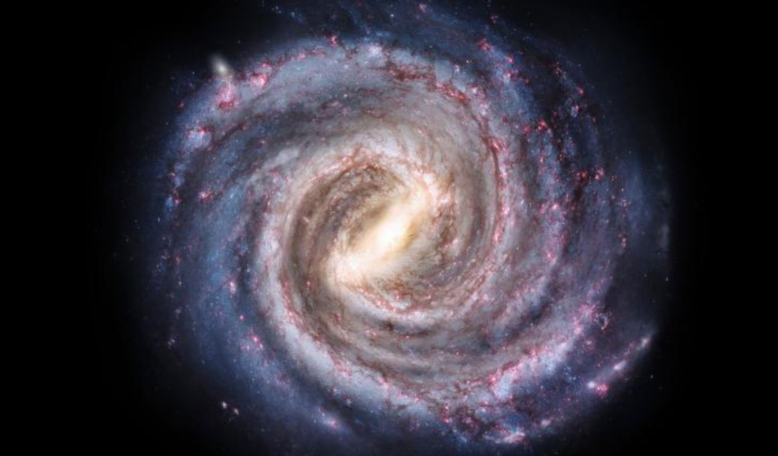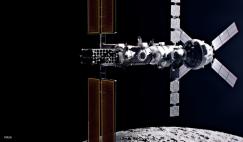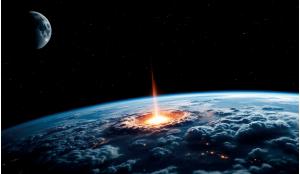A 30 year suspicion that the spinning bar at the centre of our galaxy is slowing down has been confirmed by researchers at UK institutions. Whats more, according to their study it has slowed by about a quarter since its formation nearly 14 billion years ago.
Our galaxy, the Milky Way, is classed as a typical barred spiral with a thick band of stars at its centre and if seen face on, would show four large spiral arms that wrap around it in a pattern akin to that of a Catherine wheel in motion.
Surrounding the bar at the core of the Milky Way is a large group of stars known as the Hercules stream. Stars in the Hercules stream are gravitationally trapped by the spinning bar which means they revolve around the galaxy at the same rate as the bar's spin.
If the bar's spin slows down, these stars would be expected to move further out in the galaxy, keeping their orbital period matched to that of the bar's spin.
But how would you know that the stars that have moved further out are the same stars that were once much closer to the central bar?
With chemical fingerprints say the two researchers involved in the study.
The duo, headed by Rimpei Chiba a PhD student at the University of Oxford, found that the stars in the stream are about 10 times as rich in heavier elements, called metals in astronomy, compared to stars in the outer galaxy.
Then, using data collected by the Gaia space telescope, Chiba and colleague Ralph Schoenrich at the University College London, followed the motion of these stars containing this same chemical fingerprint and found that they had travelled away from the galactic centre.
Using this data, Chiba and Schoenrich inferred that the bar which is made up of billions of clustered stars, had slowed down its spin by at least 24 percent since it first formed. They even know why the galactic bar is slowing down in its tracks.
"The counterweight slowing this spin must be dark matter,” Schoenrich says. “Until now, we have only been able to infer dark matter by mapping the gravitational potential of galaxies and subtracting the contribution from visible matter. Our research provides a new type of measurement of dark matter - not of its gravitational energy, but of its inertial mass (the dynamical response), which slows the bar's spin."
The Milky Way, like many other galaxies, is thought to be embedded in a 'halo' of dark matter that extends well beyond its visible edge.
Despite no confirmed studies proving its existence, some scientists believe dark matter must exist as observations show that galaxies behave as if they were shrouded in significantly more mass than we can see.
By fitting a theoretical model of the composition of the Universe and other cosmological observations, scientists think that dark matter makes up about 27 percent of the cosmos and outweighs visible matter roughly six to one.
The researchers say their finding gives a new type of insight into the nature of dark matter, which acts like a counterweight slowing the spin.
“It offers a fascinating perspective for constraining the nature of dark matter, as different models will change this inertial pull on the galactic bar,” Chiba says.
“lt also poses a major problem for alternative gravity theories,” Chiba adds.
Alternative gravity theories such as modified Newtonian dynamics (MOND) reject the idea of dark matter, instead seeking to explain discrepancies by tweaking Einstein's theory of general relativity.
As MOND would not account for dark matter in the halo, it would predict no, or significantly too little slowing of the bar, Chiba explains.
"Astrophysicists have long suspected that the spinning bar at the centre of our galaxy is slowing down,” Schoenrich says, “but we have found the first evidence of this happening.
A 30 year suspicion that the spinning bar at the centre of our galaxy is slowing down has turned out to be true say researchers at UK institutions, who after studying the motions of stars close to the bar have found that it has slowed by as much as a quarter since its formation.











